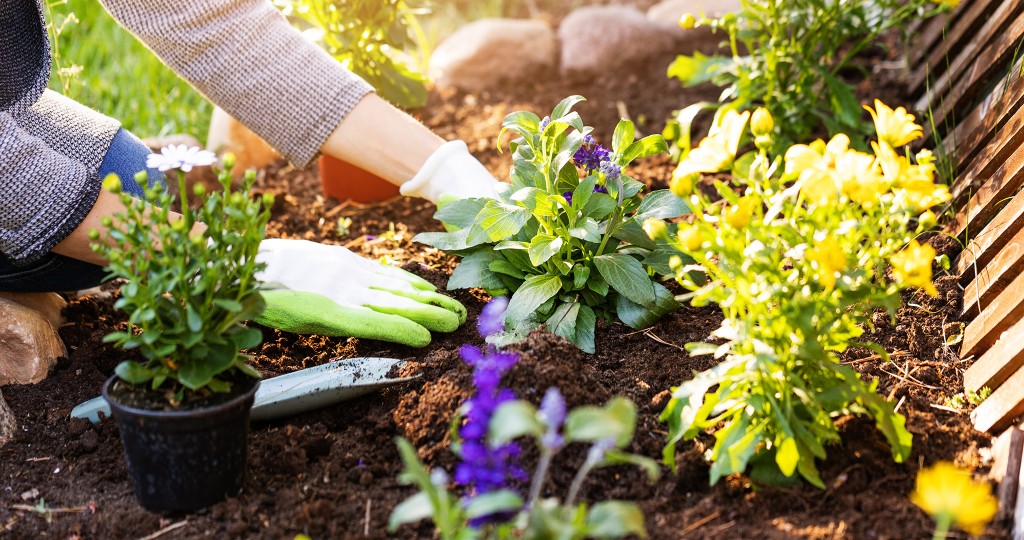3 Need-to-Know Summer Gardening Tips
Expert advice on how to help your plants survive the heat.

Taking care of your plants is hard enough, but with the soaring temperatures of summer, it’s even harder. To help, we reached out to Katie Hachmeister of City Mill for her top three gardening suggestions to help your plants thrive this time of year.
Focus on watering. “For both indoor and outdoor plants, watering needs change throughout the year depending on the weather,” says Hachmeister. “Hot summer weather means you will need to up the watering to keep your plants healthy.”
She recommends watering in the early morning, then checking on your plants in the late afternoon to see if certain areas are in need of a second watering. “This second drink will be more needed in potted plants versus plants in garden beds or planted directly in the garden,” shares Hachmeister. Droopy leaves and light-colored soil are good indicators that your plant is thirsty.

Manage the heat. With plants that require full sunlight, it’s still possible for them to have too much sun in the summer. “To help combat the heat with my herbs and veggies, I put the ones that don’t require as much sun in shadier areas,” says Hachmeister.
For instance, fruiting vegetables require more sun than leafy greens and herbs. Here’s what Hachmeister does: “I keep my greens, like mint, kale, basil and the like, where they only receive a few hours of full sun every day, and put my tomatoes, peppers, cucumbers, etc., where they receive a good six to eight hours of sun each day.
“By pulling the leafy greens back into more shade, it has greatly reduced the days I come home to sad, droopy leaves,” she adds.
If you can’t move your plants around, consider putting a light shade cloth over your garden.
Take down the pests. The combination of warm weather and flourishing plant life equals an increase in pest activity, such as aphids and slugs. “Paying attention to new growth and pest infestation prevention are the best ways to keep these guys under control,” says Hachmeister. “When working in your garden, take the time to inspect your plants. Most insects go for the tender new growth and live on the undersides of leaves.”
To tackle her pest problems, Hachmeister prefers using insecticidal soaps — an effective solution that can be used on organic gardening — for her plants to help control and prevent future issues. For slugs, she also recommends Sluggo brand slug bait. “It is very effective, lasts a long time, and is safe to use around pets and people,” she says. “Keeping your plants healthy and happy will also help them to better defend themselves against insects and disease.”






